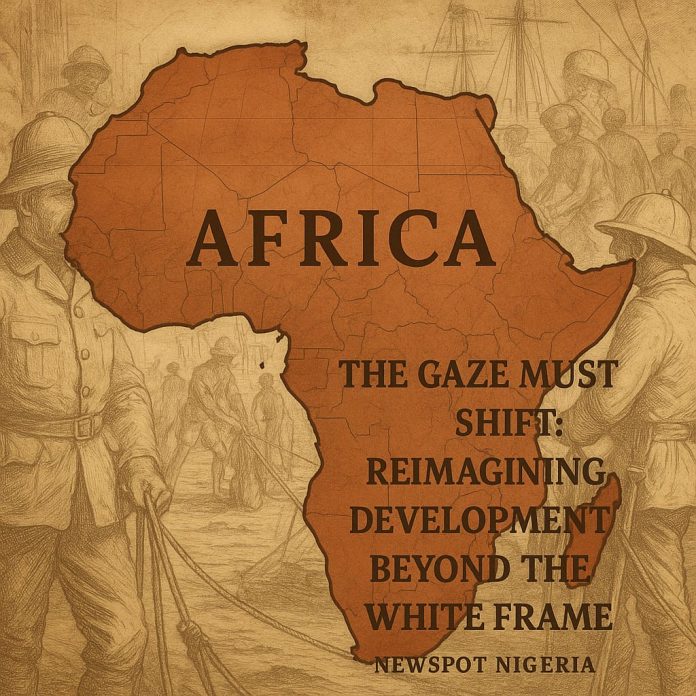By Newspot Nigeria
In the global development arena, progress is often measured against standards set in the West—leaving the Global South trapped in a cycle of mimicry, dependence, and imposed narratives. Robtel Neajai Pailey’s bold essay, De-centring the ‘White Gaze’ of Development, challenges this dynamic head-on. It is not just a critique; it is a declaration that race and power must take center stage in development thinking.
Pailey draws from lived experience and academic inquiry to show how whiteness—both as identity and ideology—remains a gatekeeper in development discourse. Whether through the unchecked elevation of young white consultants over seasoned African professionals or the erasure of race in mainstream development studies, the problem is structural, not incidental. The ‘white gaze’ assumes that progress must be defined through Western benchmarks, and that Africa can only catch up—not lead.
But as Pailey argues, this gaze can and must be reversed. From grassroots resistance movements to alternative knowledge systems and the rising influence of actors from the Global South, the old order is being challenged. Yet, this shift will only be meaningful if race is not sidelined. We must stop speaking of “developing countries” as if they are inherently behind and begin to ask who defines development, on whose terms, and to what end.
The essay is a call for new intellectual alliances—between Critical Race Theory and Critical Development Studies—and for policies that don’t just include people of color as tokens, but center them as architects of new paradigms. It asks development institutions, academics, and practitioners to unlearn inherited prejudices, dismantle epistemic hierarchies, and build inclusive frameworks rooted in justice, not charity.
Here in Nigeria, the implications are profound. Our universities, ministries, and civil society must engage with race and power not just abroad, but at home—recognizing how colonial legacies still shape donor relations, policy choices, and even citizenship laws. To reclaim agency, we must stop asking how to “catch up” with the West and start asking what it means to lead with our own voice.
This piece is published by Newspot Nigeria as part of our ongoing series exploring justice, equity, and the future of African development.
 Loading...
Loading...
Share your story or advertise with us: Whatsapp: +2347068606071 Email: info@newspotng.com

















